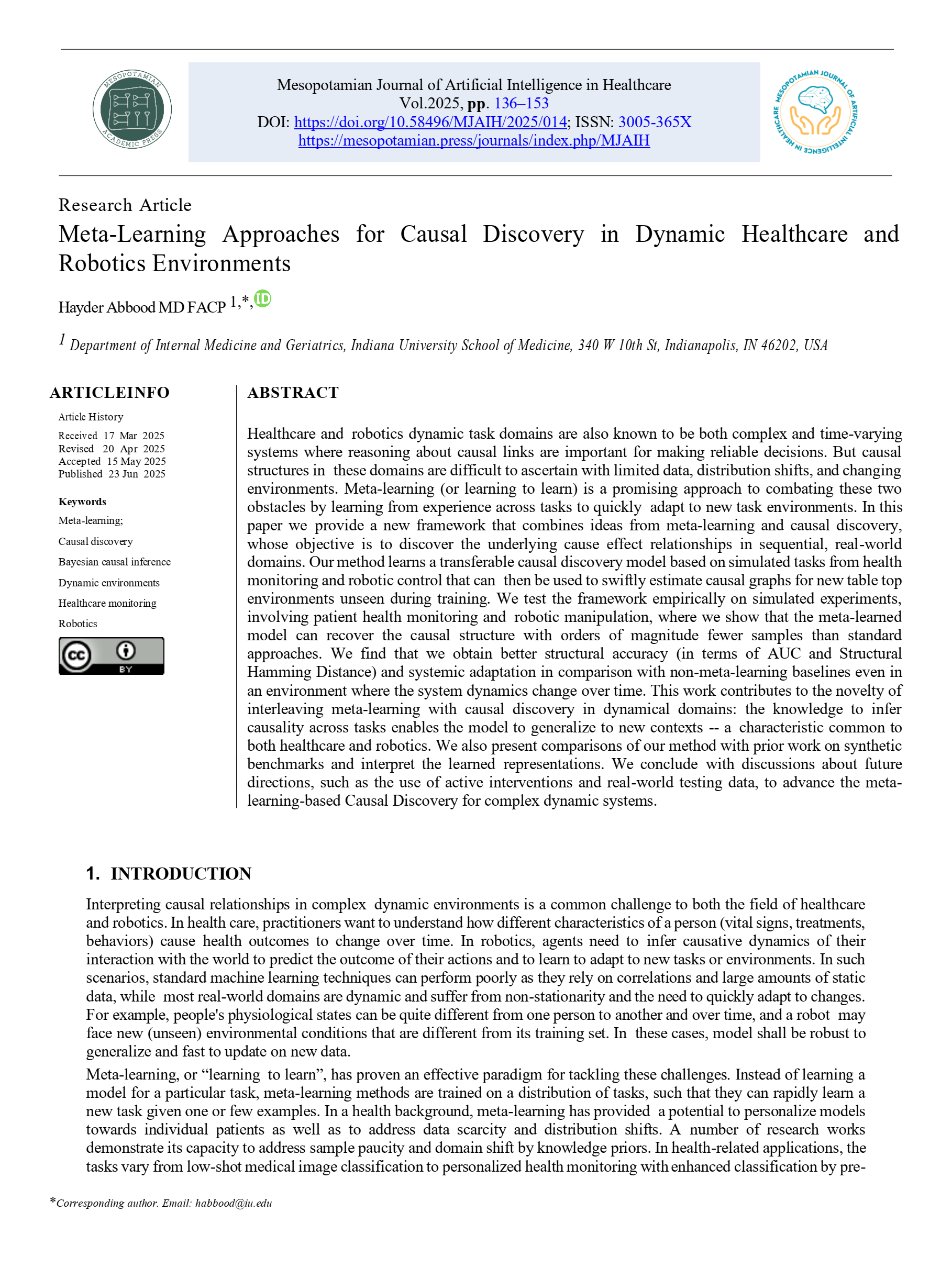Meta-Learning Approaches for Causal Discovery in Dynamic Healthcare and Robotics Environments
Main Article Content
Abstract
Healthcare and robotics dynamic task domains are also known to be both complex and time-varying systems where reasoning about causal links are important for making reliable decisions. But causal structures in these domains are difficult to ascertain with limited data, distribution shifts, and changing environments. Meta-learning (or learning to learn) is a promising approach to combating these two obstacles by learning from experience across tasks to quickly adapt to new task environments. In this paper we provide a new framework that combines ideas from meta-learning and causal discovery, whose objective is to discover the underlying cause effect relationships in sequential, real-world domains. Our method learns a transferable causal discovery model based on simulated tasks from health monitoring and robotic control that can then be used to swiftly estimate causal graphs for new table top environments unseen during training. We test the framework empirically on simulated experiments, involving patient health monitoring and robotic manipulation, where we show that the meta-learned model can recover the causal structure with orders of magnitude fewer samples than standard approaches. We find that we obtain better structural accuracy (in terms of AUC and Structural Hamming Distance) and systemic adaptation in comparison with non-meta-learning baselines even in an environment where the system dynamics change over time. This work contributes to the novelty of interleaving meta-learning with causal discovery in dynamical domains: the knowledge to infer causality across tasks enables the model to generalize to new contexts -- a characteristic common to both healthcare and robotics. We also present comparisons of our method with prior work on synthetic benchmarks and interpret the learned representations. We conclude with discussions about future directions, such as the use of active interventions and real-world testing data, to advance the meta-learning-based Causal Discovery for complex dynamic systems.
Article Details
Issue
Section

This work is licensed under a Creative Commons Attribution 4.0 International License.
